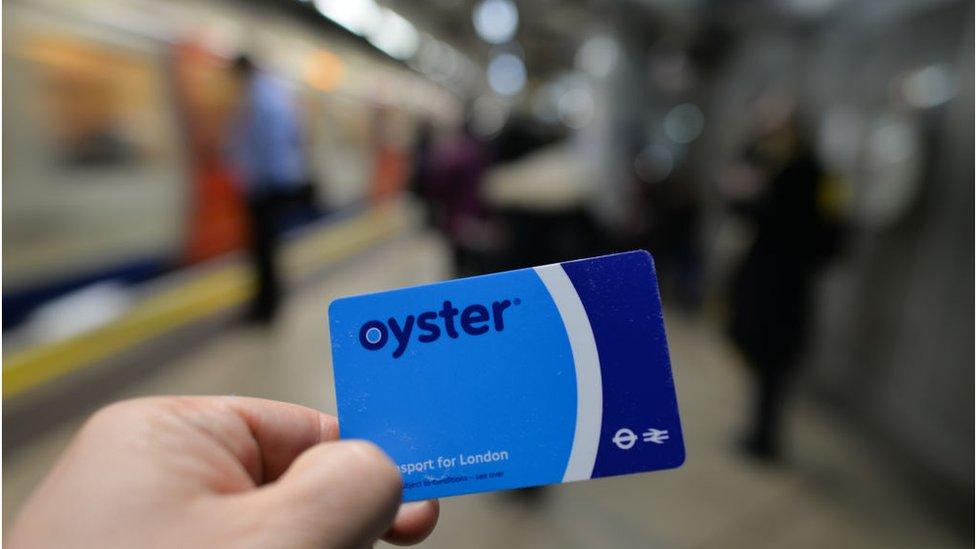'Packed trains and delays on the new misery line'
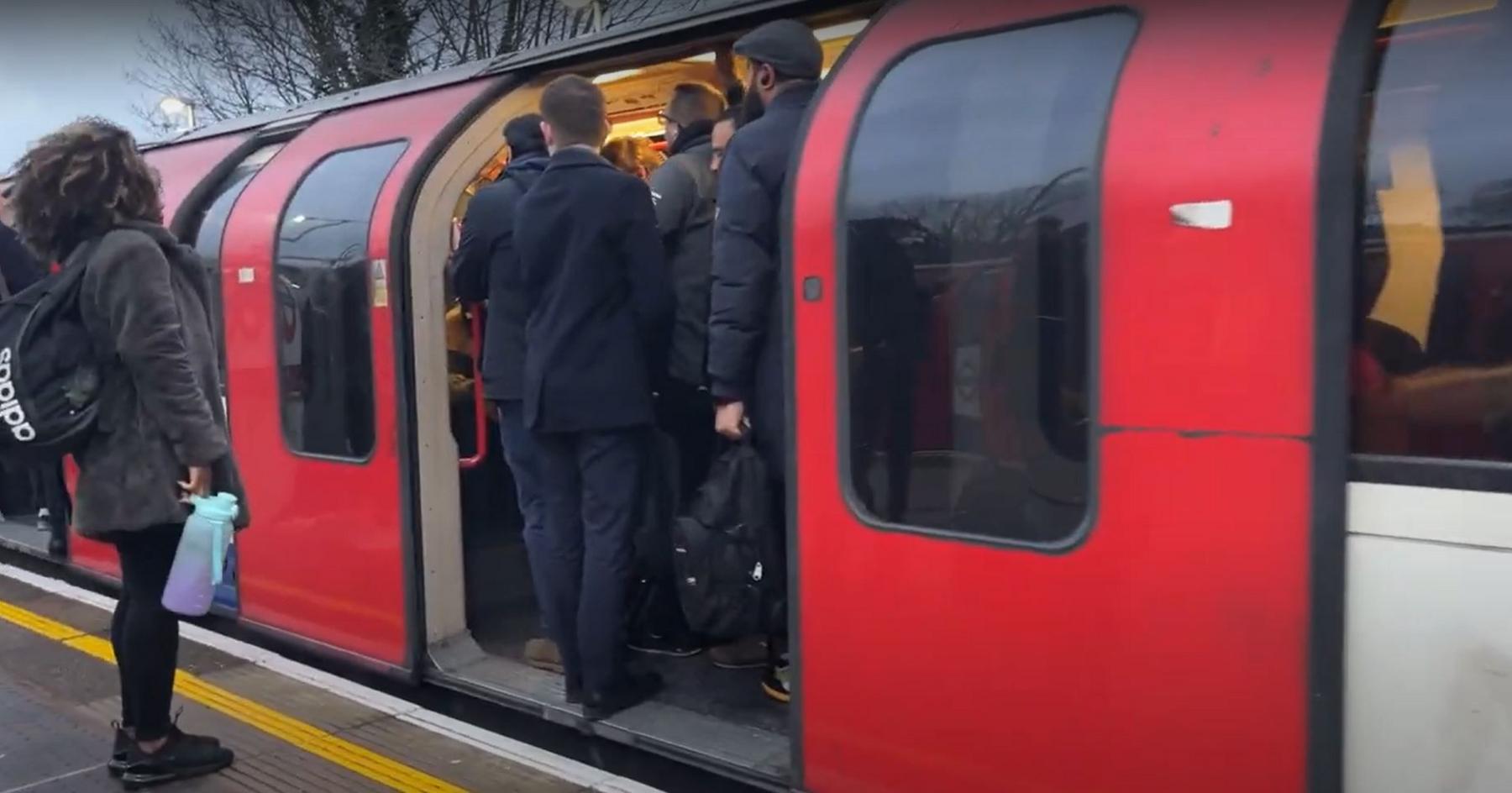
Central line trains are often packed when they do arrive
- Published
It is another weekday and thousands of people are using the London Underground's Central line to get to work.
The problem is there aren't many trains and the boards show a gap of 17 minutes between each one.
When the trains arrive, they are packed and many passengers cannot get on; there has been disruption nearly every day since Christmas on the Central line.
Welcome to the new misery line.
London's transport bosses say the disruption will probably last "until the summer" and that they are working to remedy the situation with bus routes and an interim timetable, which "will hopefully provide a more even service".
Shannon Corbett is a commuter, and she is fed up with the service: "Since November it has been very challenging getting to work on time.

Shannon Corbett says things have become "unbearable"
"Even when I have left 20 minutes early to get to early meetings on time, I haven't got to meetings on time, I've been late. It's just extremely frustrating.
"I've had to wait 10 minutes for a Tube and then, because I'm down the line in Woodford, I've not been able to get on that Tube, and then there's another seven minutes to get on the next Tube.
"It's just become unbearable."
The Central line is 49 miles (79km) long, making it the longest on the Tube network. It is also the second busiest carrying about 280 million passengers a year.
'Workhorses of the capital'
It needs 77 trains to operate a full service with a train every couple of minutes. Unfortunately, at the moment it is operating using 50 or so.
The problem is an unpredicted spate of faulty DC motors. These motors are obsolete and no longer made, and so have to be repaired and that takes time.
The trains are from the 1990s and transport bosses say they are not particularly reliable. The older trains on the Bakerloo line have a better performance; the Central line trains are the workhorses of the capital and they have been hammered.
They are heavily used in different environments and that adds to the wear and tear.

Sam Riches says colleagues in the emergency services trying to get to work are being let down
Sam Riches is a commuter who says he is "seeing all my colleagues, all the emergency service workers trying to get to their shifts".
He says they are "travelling far and wide to come in and perform the remarkable jobs they do and to not be able to get on the trains to perform it is a disgrace".
Longer term there is a programme called the Central Line Improvement Programme (CLIP). Each train will be taken out of service and refurbished and its motors will also be replaced with more reliable AC motors.
That is due to be completed by 2029 and will cost £500m. A new fleets costs about £1.5bn.
CLIP is a stop-gap because what London's transport bosses really want is a new fleet. However, the funding from central government has not been forthcoming.

Martin Clinton says if you have to wait 20 minutes for a train you "are not getting on", as they will be packed
Martin Clinton says he has given up on journeys after waiting half an hour for trains:"It makes you anxious," he says.
"It's this Russian roulette that's the problem. Is it going to be a five-minute wait for a train, or 20 minutes?
"And I know there are people that say, '20 minutes wait for a train, that's good'. Well, if you have used the Central line in rush-hour, if you wait for 20 minutes you are not getting on. It's depressing. "
Transport bosses are now going to introduce an interim timetable in late February. It will mean trains every three minutes in the core of central London, and every five to 10 minutes out on the branches.
The bad news is the Central line probably won't get back to normal "until the summer".
As any seasoned observer knows, when management start using seasons as deadlines there is every chance it will slip.
'End of their life'
Richard Jones is Transport for London's (TfL's) director of asset performace on the London Underground. He says he has apologised to passengers: "We have traction motors on the Central line that are suddenly failing at an unexpected rate.
"And it's required us to take trains out of service, hence the delays that customers have seen.
"The motors themselves are 30 years old and have been quite problematical since they came onto the railway in the early 90s.
"They're frankly at the end of their life and are due to be replaced as part of our improvement programme on this fleet."
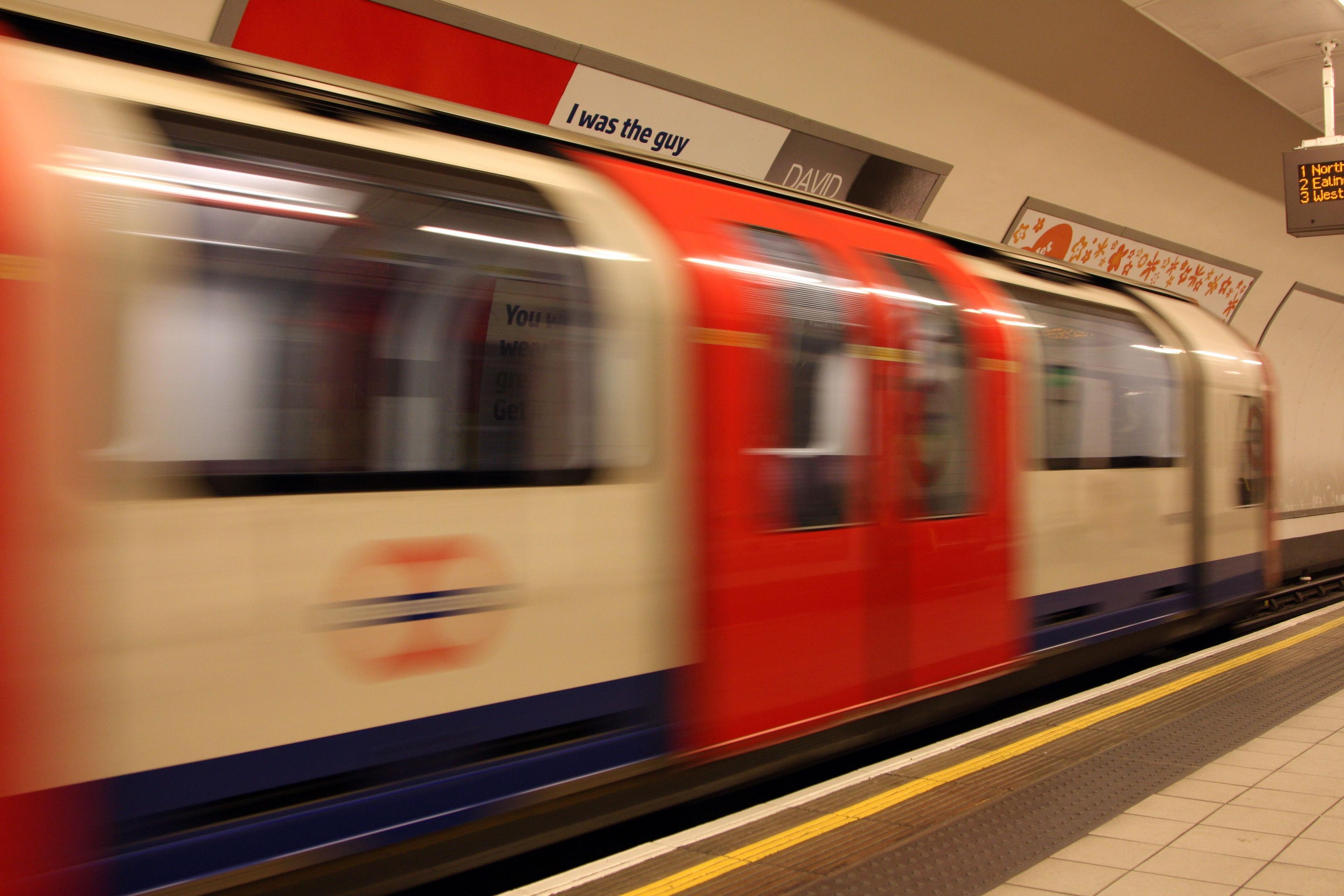
TfL says engineers could not have foreseen the failures of the motors on Central line trains (file photo)
The Central line problems will become more political in the run-up to the mayoral elections on 2 May.
The current mayor, Sadiq Khan, who is also chair of TfL, has spent £123m of Greater London Authority funding to pay for a fares freeze for one year. He is also planning to spend £24m on making all fares off-peak on Fridays.
His opponents on the City Hall Conservatives think that money should have been spent on the Central line. The mayor blames a lack of investment from central government on capital spending for a new fleet.
Meanwhile, London's Green Party leader Sian Berry says more time and effort should be invested "into all forms of transport across this city", so every Londoner "can feel confident getting around without a car".
And City Hall's Lib Dems called the fare freeze and off-peak Fridays "pre-election gimmicks" and called on the mayor and TfL to "priotise funding".
"We have already seen warnings this sort of disruption could spread to the Northern, Bakerloo and Piccadilly lines if this issue is not gotten to grips with," London assembly member Caroline Pidgeon said.
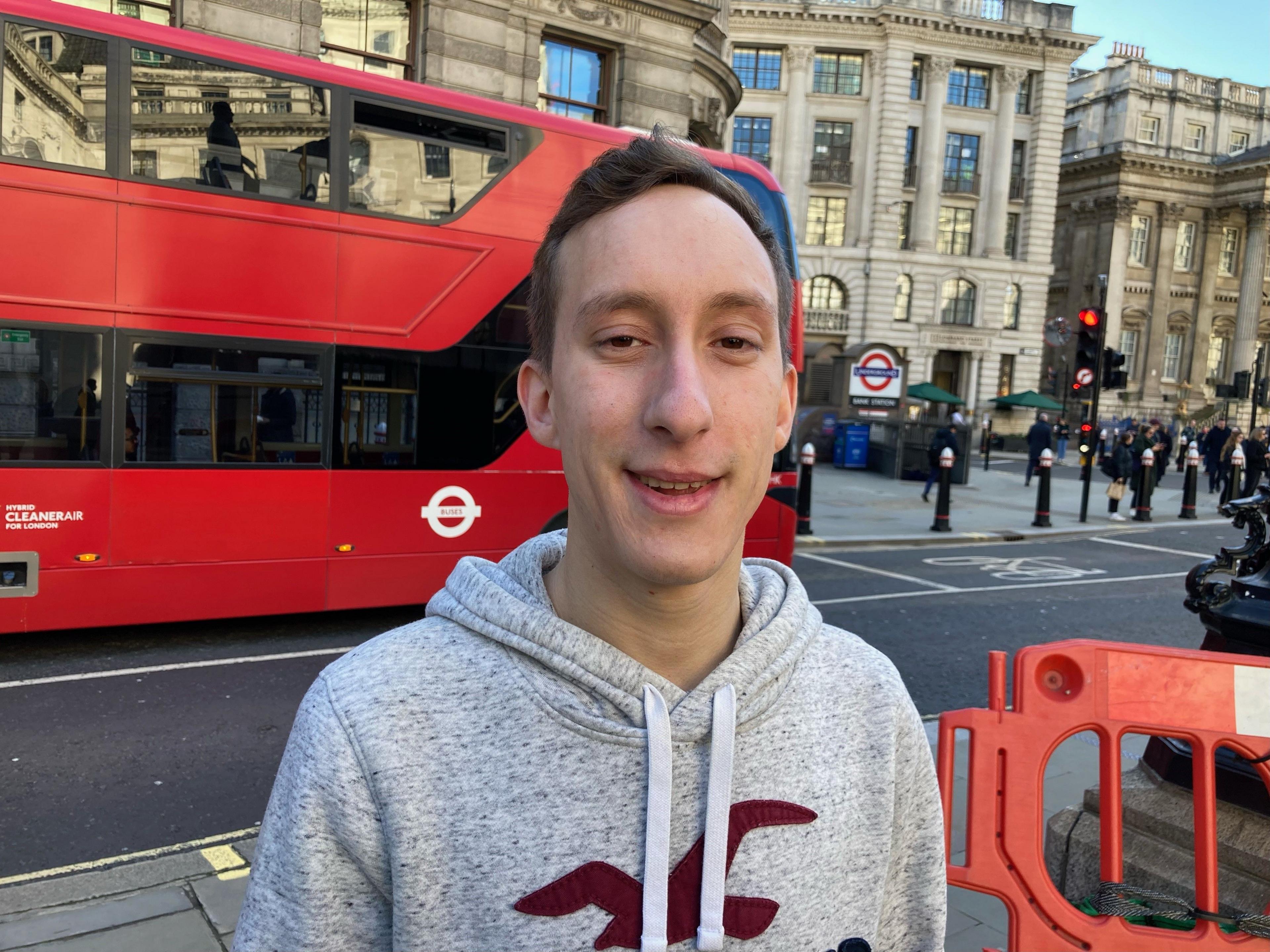
Early-morning commuter Aaron Larnder says many questions need answering by TfL
Aaron Larnder, who uses the Central line to get to his early shifts in south London, says TfL should have planned for possible disruption years ago.
"They know how old these trains are, they're from the 90s," he says.
"There are trains on the Bakerloo line from the 70s that are more reliable. Many questions need to be answered and it's infuriating."
New interim timetable
Mr Jones adds that TfL has been working to find solutions, including "a number of bus routes to provide shuttles across to locations at the east of the line, where there are fewer alternatives", as well as the interim timetable.
This, he says, "will hopefully provide a more even service".
Engineers could not have foreseen the failures of the motors, he says: "We geared-up to see an increase in the level of failures but not to the degree we have seen.
"We would have liked to have replaced the whole fleet but obviously government uncertainty over captial funding has meant we have had to introduce the upgrade programme to the existing trains."
He says Central line trains are "unique".
"There's no other fleet that's typically like them, so we don't expect this kind of problem to occur on other fleets but, clearly, when we have older trains they are more at risk of failure."
At the moment, a combination of lack of investment, old failing components and a heavily used commuter route make for a miserable few months ahead for many.
Related internet links
- Published30 January 2024
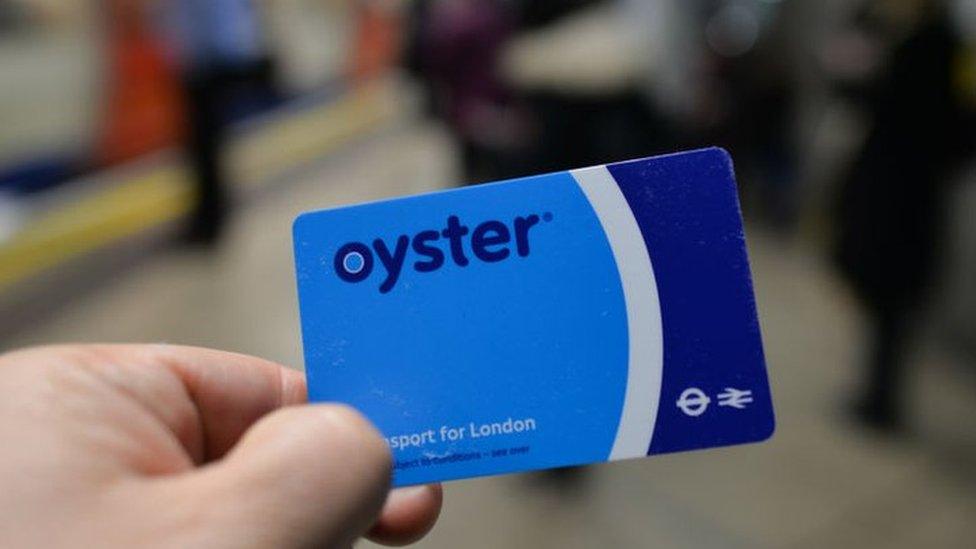
- Published19 January 2024
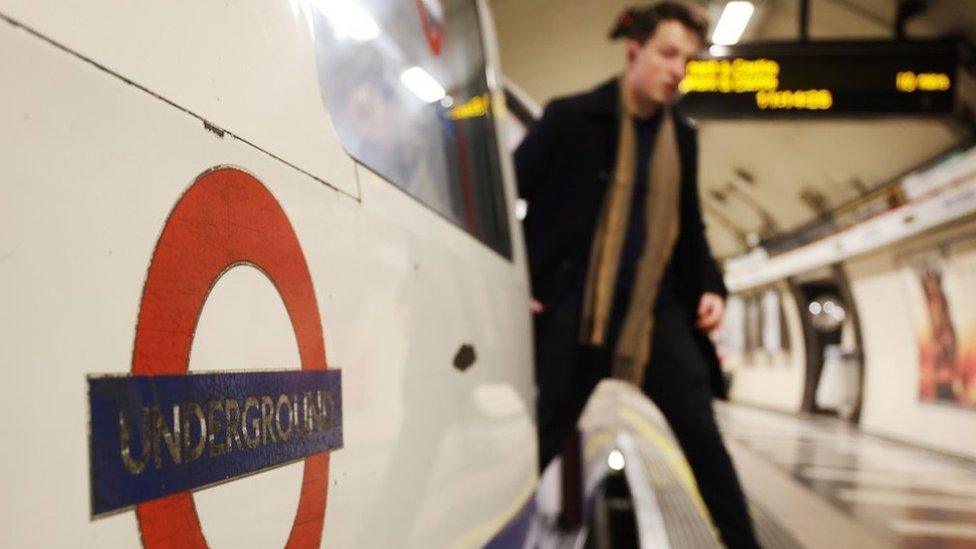
- Published28 January 2024
